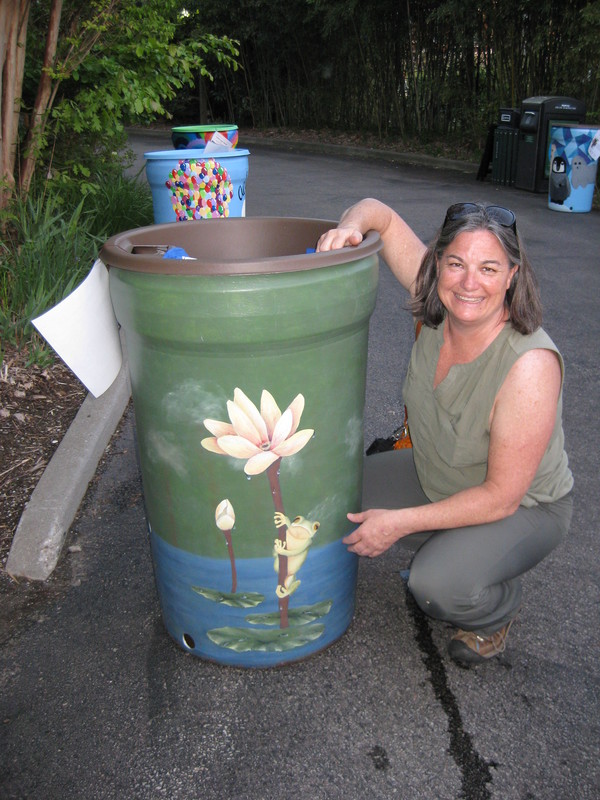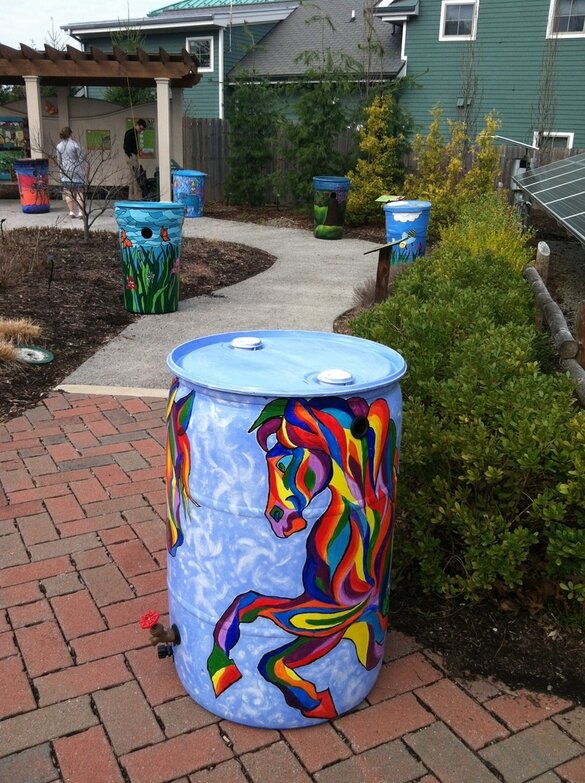|
Rain barrels capture water from a roof and hold it for later use on lawns, gardens, or indoor plants. Collecting roof runoff in rain barrels is helpful in times of drought and reduces the amount of water that flows from your property. It's a great way to conserve water and provides free water for use in your landscape. Rain barrels can be purchased or easily constructed.
Note: As rain water flows over a roof surface it can pick up pollutants such as bacteria from birds and other animals and chemicals from roof materials - factors to consider when thinking about using rain barrel water on edible plantings. Want to learn more? Check out our Rain Barrel Webinar or the videos to learn how to make your own or install a store-bought rain barrel! |
|
MAKING A RAIN BARREL |
INSTALLING A RAIN BARREL |
Rain Barrel Maintenance Tips
Caution is warranted when using harvested water for a vegetable/herb garden to reduce the risk of exposure to a harmful contaminant like E. coli. Below is a list of recommendations for pathogen treatment and best practices for utilizing collected rain water to irrigate vegetable/herb gardens:
- Rain barrel users should make sure to clean the barrel with a 3% bleach solution before collecting water to irrigate a vegetable/herb garden. Household, unscented bleach with a 5–6% chlorine solution can be added at the rate of 1/8 teaspoon (8 drops) of bleach per gallon of water. A typical 55 gallon rain barrel would need approximately one ounce of bleach added on a monthly basis. During periods of frequent rainfall, bimonthly treatment may be necessary. Wait approximately 24 hours after the addition of bleach to allow chlorine to dissipate before using water. Note that household bleach is not labeled for use in water treatment by the Food and Drug Administration although it is frequently recommended for emergency disinfection of drinking water (USEPA, 2006b).
- When using harvested water to irrigate a vegetable garden, care should be taken to avoid getting water on the plant itself. Harvested rainwater should only be applied to the soil, possibly through drip irrigation. A watering can may be used as long as the water does not get directly on the plant.
- Water should be applied in the morning only. Produce harvesting should not take place right after watering in order to benefit from leaf drying and ultraviolet light disinfection.
ADDITIONAL RESOURCES:
rain barrel art project
Warren County SWCD and other sponsors partner with Save Local Waters on the Rain Barrel Art Project every year. The Rain Barrel Art Project invites local artists to design and paint rain barrels that are auctioned off at the Cincinnati Zoo. Learn more about the Rain Barrel Art Project by visiting Save Local Waters!


